Parental Support
Promoting Parental Well-being
Podcasts
- Far from the Tree: Parents, Children, and the Search for Identity. Andrew Solomon tells the stories of how different parents find meaning in raising their children.
- Father’s Day: A Journey into the Mind and Heart of my Extraordinary Son. Philadelphia author Buzz Bissinger talks about the lessons he learns from his son while on a trip across the country.
Books
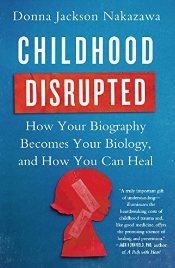
Childhood Disrupted: How Your Biography Becomes Your Biology, and How You Can Heal
Donna Jackson Nakazawa shares stories from people who have recognized and overcome their adverse experiences, shows why some children are more immune to stress than others, and explains why women are at particular risk. “Groundbreaking” (Tara Brach, PhD, author of Radical Acceptance) in its research, inspiring in its clarity, Childhood Disrupted explains how you can reset your biology—and help your loved ones find ways to heal. “A truly important gift of understanding—illuminates the heartbreaking costs of childhood trauma and like good medicine offers the promising science of healing and prevention” (Jack Kornfield, author of A Path With Heart).
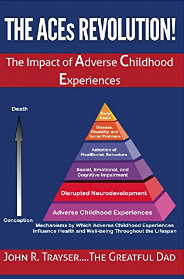
The ACEs Revolution!: The Impact of Adverse Childhood Experiences
John’s book does a superb job of giving hope on how to prevent ACEs and has remarkable results for every family that reads the second part of the book out loud together! Conversations will begin that are essential to heartfelt communication.
The ACE (Adverse Childhood Experiences) study details the significant impact of childhood trauma on the emotional and physical well being for the remainder of your life. John’s book does a great job of showing the impact of ACEs in all phases of our lives.
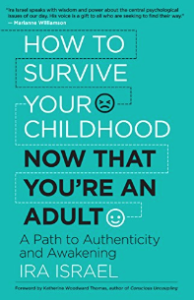
How to Survive Your Childhood Now That You’re an Adult: A Path to Authenticity and Awakening
As children, we learned to get approval by creating facades to help us get our emotional and psychological needs met, but we also rebelled against authority as a way of individuating. As adults, these conflicting desires leave many of us feeling anxious or depressed because our authentic selves are buried deep beneath glitzy or rebellious exteriors or some combination thereof. In this provocative book, eclectic teacher and therapist Ira Israel offers a powerful, comprehensive, step-by-step path to recognizing the ways of being that we created as children and transcending them with compassion and acceptance. By doing so, we discover our true callings and cultivate the authentic love we were born deserving.
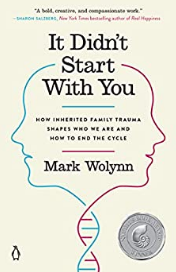
It Didn't Start with You: How Inherited Family Trauma Shapes Who We Are and How to End the Cycle
Depression. Anxiety. Chronic Pain. Phobias. Obsessive thoughts. The evidence is compelling: the roots of these difficulties may not reside in our immediate life experience or in chemical imbalances in our brains—but in the lives of our parents, grandparents, and even great-grandparents. The latest scientific research, now making headlines, supports what many have long intuited—that traumatic experience can be passed down through generations. It Didn’t Start with You builds on the work of leading experts in post-traumatic stress, including Mount Sinai School of Medicine neuroscientist Rachel Yehuda and psychiatrist Bessel van der Kolk, author of The Body Keeps the Score. Even if the person who suffered the original trauma has died, or the story has been forgotten or silenced, memory and feelings can live on. These emotional legacies are often hidden, encoded in everything from gene expression to everyday language, and they play a far greater role in our emotional and physical health than has ever before been understood.
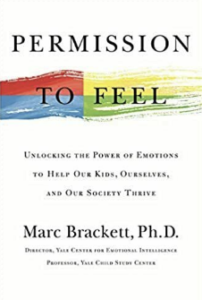
Permission to Feel: Unlocking the Power of Emotions to Help Our Kids, Ourselves, and our Society Thrive
How are you feeling? We ask this question often because our feelings are an important source of information about our internal lives, yet too often we do not ask or answer with sincerity. Marc Brackett, a Yale professor and Director of the Yale Center for Emotional Intelligence, argues that our emotions, though messy, make us human. Further, when we deny ourselves permission to feel, as we often do, we as individuals and a society suffer adverse consequences. In Permission to Feel: Unlocking the Power of Emotions to Help Our Kids, Ourselves, and our Society Thrive, Brackett draws on his extensive research expertise and personal experiences to teach skills for recognizing, understanding, labeling, expressing, and regulating emotions.